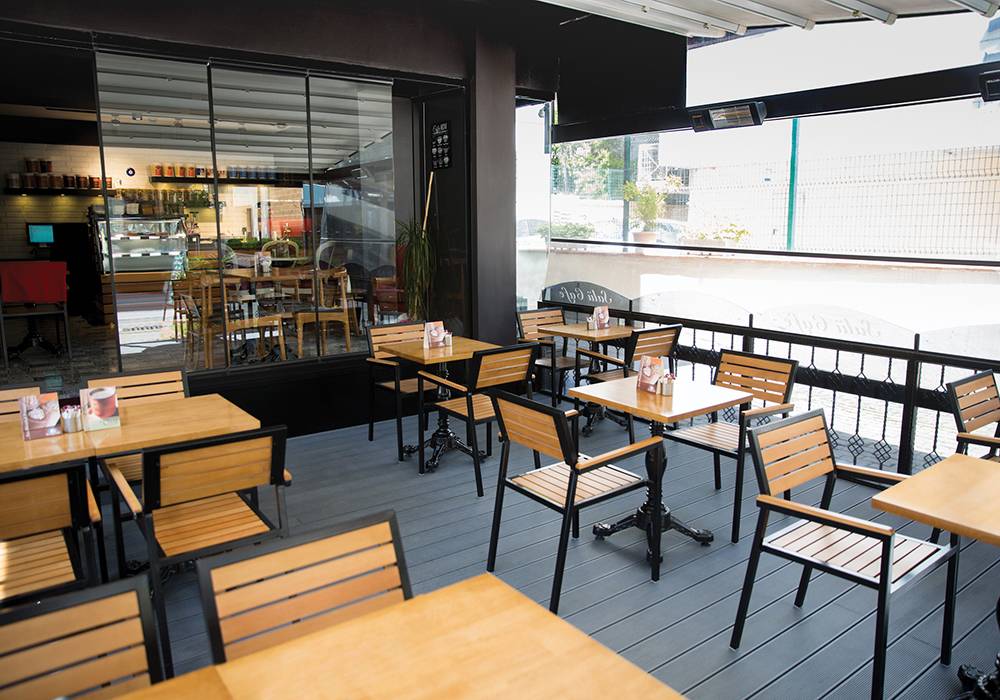
Retirement – A New Beginning
Going back about fifty years, retirement was considered to be the short gap between receiving a gold watch and the last rights!
Happily today retirement is accepted as the start of a whole new life adventure.
With the likelihood that we will retire with all our faculties intact and fully functioning and with a good number of years in front of us, we now need to take a little more time to plan our retirement years to make sure we get the absolute most out of them.
Whatever your retirement dream – from a home in the sun, a boat on a river, or simply pottering about in the garden – all of these things are possible with careful planning.
But have you ever wondered why so many of us constantly push the practicalities of retirement planning to the back of our minds while rushing through our lives complaining about the pressures of work and dreaming of the day when we can finally put our feet up?
What is it that causes this dichotomy in us?
I think that most of us would agree the two main causes are lack of time and reluctance.
And yet each and every one of us knows how important it is to plan and save for our retirement!
After all we are quite literally bombarded by the media week in week out with facts about the pension time bomb and the fact that many of us will apparently struggle for the price of a cup of tea let alone a beautiful villa in the sun when we get to 65!
So, with all that information taken on board what can we do to make our retirement a happy one?
Whether you’ve got a full 40 years to save and plan, or if retirement is just a few years down the road and you’re worried that it may be a little late to start any radical pension planning, this three part retirement planning roadmap should save you time, remove your reluctance and cover the three key aspects of retirement planning – namely our physical wellbeing, our financial wellbeing and our spiritual wellbeing in retirement.
In other words, read on for some practical tips to ensure that you retire healthy, wealthy and wise.
Healthy – Physical Wellbeing in Retirement
Every single day of our lives we grow, we mature, we develop…and we grow older.
And when we’re very young we sometimes view retirement as something that equates to old age. We have images of old people in rocking chairs with blankets over withering legs rocking away the last days of their lives! No need to plan then – just throw me a blanket and I can do the rest myself!
But as we mature and grow older we soon come to appreciate that there can be a considerable amount of time between finishing our working lives and needing to settle into that rocking chair – and that that time is ours to enjoy to the full!
And while it is true that the body ages and that no man can turn back the tides of time, none of us has to get old unless we choose to do so!
Our bodies may age but we don’t have to!
So, there are really two considerations when it comes to the ageing process and welfare in retirement – namely the physical aspect and the emotional aspect.
The Physical Aspect
As ill health can smite any one of us at any age, we should consider our physical wellbeing throughout our lives; both from the point of view of prevention and the point of view of cure.
Prevention
When we actively take steps to encourage good health we are far more likely to enjoy longevity; and in taking such action we could make the difference between a happy healthy retirement and an old age blighted by failing health.
Keep active. Many of us have sedentary lives; we drive to work, sit in an office, drive home and then sit down to watch the telly. But keeping active should really be seen as a mandatory part of our lives, right through and into retirement.
While busy lives may make it difficult to find time for set exercise, there are always things we can do to improve our overall fitness. Consider parking your car two streets away from the office and walking the last ½ mile, take the dog for long walk (he’ll love you!), buy a bike, go on a walking weekend or weed the garden. Simply by adding a little physical activity into our working lives now, we will be pushing back the years and ensuring that we are able to fully enjoy the freedom that retirement will afford us when the time comes.
Maintain a healthy lifestyle. Enjoy nutritious food, adequate sleep, avoid nicotine and keep alcohol consumption within sensible limits.
Reduce stress. Everyone suffers from stress sometimes, and we are all well aware of the long term damage stress can do to our health. So, do everything within your power to reduce your stress levels. And if it is beyond your control to remove the stresses affecting your life, never feel embarrassed or afraid to seek help. If you can identify the primary reason for your stress maybe you can begin to see what you need to do to fix it. I know this is so often easier said that done – but please remember it is your health and your happiness at stake here and that has to be your priority.
Be Proactive. You know your own body better than any one else. Listen to it, and react accordingly when it is trying to tell you something. Don’t ignore potential symptoms, recognise them and get them treated.
Cure
In recent years health care costs have risen between two and three times faster than inflation and naturally enough health insurance has become more costly at the same time making it seem altogether too unattractive an option for some people.
But while the vast majority of us would never dream of driving our car uninsured or living without household insurance, we do exactly that with our own bodies! We trust our health to luck and good fortune!
Consider, if you will, the following facts: –
– The British National Health Service is stretched to its limits with up to a million people on waiting lists at any one time.
– Few other countries in the world offer any form of ‘free’ medical treatment, if you are thinking of retiring abroad bear this in mind.
– In retirement most people live on a fixed income which does not allow for exorbitant and ever increasing health care costs.
– As we get older our bodies need more TLC and fine tuning, and age makes us more susceptible to ill health and increases average recovery and recuperation times.
These facts show why it is important to consider health care costs when it comes to retirement planning. And in considering health care costs and retirement, factor in increasing health insurance premiums if you have insurance. Factor in health care costs if you are relocating abroad without insurance. Factor in the potential need for private treatment ‘back home’ for serious conditions, and also consider the fact that you or your spouse may need long term, full time care later in life.
But don’t panic!
At this point many people panic and decide to do nothing. (Guilty?)
They can only see a potentially huge cost that they simply can’t afford. But health insurance comes in many forms. Find a reputable company to advise you, get a second opinion and shop around! And while you may not be able to afford the ‘platinum 5 star package’ you may still be able to afford a little peace of mind and an acceptable level of care should you need it.
The Emotional Aspect.
How come some people seem old at 40, while other people can exude youth, life and vitality that belies their age?
Presuming good health, I can only assume that mental attitude is at play here!
So how can we make sure we’re the ones full of beans in our 80s rather than the ones on tranquillisers in our 40s?
Learn to love life! Life knocks us all about sometimes – and at times we’ve probably all felt like we’ve gone a few rounds with Mike Tyson. However take some time to consider the good things about your life. Make an effort to reflect upon the positive; enjoy life’s simple pleasures and create a balance that always leans towards the positive and not the negative.
Keep your mind active! Keep learning and developing throughout life. Never feel that you’re too old to learn new skills – it’s simply not true that you can’t teach old dogs new tricks!
Focus on positive emotions rather than negative ones! Negative emotions bring mental and physical disharmony and ill health. If you dwell on regrets, disappointments or resentment you will be weighed down with bitterness and miss out on life. People who can forgive and love will remain youthful simply because they will have anticipation and excitement in their lives. And if you don’t love or feel loved you’ll quickly start to age and feel lonely.
Don’t stop dreaming and hoping and longing! Stay future focused. You will find that your motivation, desire and anticipation for the future and the realisation of your dreams will keep you positive and active and that your stamina will be boosted, your energy levels heightened and your mental attitude will stay young.
Wealthy – Financial Wellbeing in Retirement
Financially speaking, the ‘cost of delay’ in terms of retirement planning can be illustrated like this – if a 25 year old and a 35 year old were to start saving today for retirement at age 55 and the 25 year old invested £300 a month towards retirement, the 35 year old would have to increase his contributions to £803 a month to achieve the same potential returns!
I know, I know, talking about money – especially pensions – is the fastest way to send anyone to sleep. But seriously, it’s never too soon to take charge of the financial aspects of retirement planning!
And if you’re still not convinced, according to research out of 100 young people now aged 25, 1 will be rich in retirement, 4 will be financially independent, 5 will still be working, 12 will be completely broke, 29 will be dead, and 49 will be dependent on their friends, family and charity. That means that of those who live to retirement, 93% will be dependent on friends, relatives and charity!
Scary isn’t it?
So now that you’re ready to start your retirement financial planning (!) here are some important aspects that you need to consider.
Your own personal circumstances are unique: consider seeking professional and personalised independent financial advice before taking action – but do so as soon as possible.
Consider joining your employer’s occupational pension scheme (if one exists!) or getting yourself a personal pension – and the sooner the better!
Be realistic about how much you should be contributing towards your retirement – based on your age now, the age at which you hope to retire, and the lifestyle you hope to achieve in retirement.
Increase your contributions as your income increases and pay in as much as you can afford while you’re earning.
If you’re on a lower income you may wish to consider alternative savings vehicles – ISAs, National Savings or mutual funds for example. These can all be accessed prior to retirement if needs be. However, consider the tax effectiveness of any savings vehicle and remember that pension contributions generally have a higher rate of tax relief.
If you have a pension plan already in place but are unhappy with it or wish to change it, know that pension surrender or early encashment are rarely the best options available to you.
As you get older, consider topping up your pension.
Find out about your State pension entitlements and plan when you want to start receiving your private pension income. You can access funds from the age of 50, but of course it goes without saying that the longer you save, the longer your fund has to mature and the more likely you are to get better returns on your investment.
Never forget that the value of an investment can go down as well as up!
Think about the long term practical and taxation issues relating to the receiving of pension income if you choose to retire abroad or if you have been investing offshore. If you choose to retire in a country not classed as being within the European Economic Area your State pension (such as it might be) will not necessarily increase in line with inflation. Seeking professional advice is the first step in the right direction to finding the right financial solution – it will save you time and money in the long run and reduce your cost of delay significantly!
Is it too late for me?
Some people reading this article will agree with what I’ve written so far and then say –
“Great, but I’m 55 years old already, is it too late for me?”
The simple answer is that it’s never too late!
You just have to plan differently.
Being realistic is essential – if you don’t have a private pension, if you have little in the bank and have had no great luck on the lottery recently then it may be wise to shelve the yacht plans.
But taking the popular retirement plan of a house in the sun for example, that dream may well still be possible.
Consider North Cyprus or France for example – the difference in property prices between UK and both countries often means that there is a good opportunity to sell a UK home and buy in North Cyprus or France and put some cash in the bank.
Being careful is essential – let’s just say that you discover you can trade your 3 bed semi in for a 5 bed villa with a swimming pool and a Jacuzzi. Well, maybe a better deal for you would be to trade in a for a 2 bed bungalow, leaving a surplus of cash in the bank for further retirement enjoyment – the lower running costs of a 2 bed bungalow versus a 5 bed villa would also mean that your savings could go a lot further.
Never give up on your retirement aspirations – just massage them to fit your financial capabilities!
Wise – Spiritual Wellbeing in Retirement
According to current research around 74% of the British population dream about retiring abroad.
What with the lure of sunnier climes and the fact that the UK housing market has boomed in recent years enabling people to consider selling up, retiring to the sun AND putting some extra cash away in the bank, it is unsurprising really.
But if you decide to move away from your friends and family in retirement, or if your friends and family decide to leave you behind, how will you cope?
Loneliness and depression among the over 50 age group is an all too commonly reported problem nowadays. The death of a much loved partner, divorce, separation from friends and family or the departure of children from the family home can affect this age group particularly hard. And loneliness can often come to those people who do not prepare for their retirement when they suddenly feel the shock of leaving the day to day routine of a job behind, and miss the social contact they enjoyed in the work place.
While we can’t plan to avoid loneliness and sadness caused by the death of a loved one, we can make sure we have a good network of friends and family who are there with us always. Here are a few tips to help you enjoy sharing your retirement and to help you avoid loneliness in retirement.
Try and build up strong friendships with lots of people while you’re still in your 40’s and 50’s as it may be harder when you’re in your 60’s.
If you’re planning a retirement abroad (whether overseas or simply in another part of your home country) know that it can be fun and exciting but also a little bewildering!
Think about the friends you’ll be leaving behind and make sure that you part on good terms! Make sure your friends are aware that you’re not ending your friendship by moving away, and insist that they visit you in your new home – I’m sure they won’t object! Also, make provision and effort for regular contact via email or telephone.
If you move abroad you’ll probably meet many like minded people who’ve decided that retirement to the sun is their dream too. As everyone will be experiencing similar emotions: from the joy of a beautiful home to the loss of familiarity and close friends: you will have a tremendous advantage in that everyone will be as keen and eager to meet and make new friends as you are.
Retirees abroad often reflect on how much more open the people are in their new country; the need to be a part of a new community far outweighs any shyness or reluctance to join in! If you retire abroad, jump in with both feet and make an effort to meet and enjoy the company of the people in your new community.
Try learning a little of the language of the country you would like to retire to- the joy of being able to communicate in a foreign language even on the simplest level can add a new dimension and fullness to life and one of the best ways to understand any new culture is through language.
Throughout life make sure you keep your family ties strong. Stay in touch with extended family, get back in touch with long lost relations and remain close to your immediate family if you possibly can. If a family rift has occurred consider being the peace maker – it takes a ‘better person’ and a very strong and mature person to be the first to apologise.
And finally – if you do find that you suffer from loneliness there is no point whatsoever sitting and brooding about it. If you do that you will never beat it. You have to be proactive, seek out new friends and relationships. Get out of your house. Join a club, a society, an organisation and meet new people – even if you are not the sort of person who likes to get involved or join in – take a chance, you never know it might just pay off! Surely anything is worth one try if the result could be the alleviation of your loneliness?
The start of a new adventure
Retirement isn’t something to fear or dread – it’s the start of a whole new life with levels of freedom that you’ve probably never experienced before! Hopefully this article has covered the key points of effective retirement planning for you, and you can follow the retirement planning roadmap and secure yourself a healthy, wealthy and wise future.





